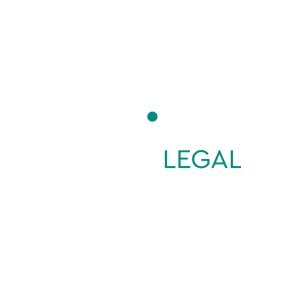Best Oil, Gas & Energy Lawyers in Mauritius
Share your needs with us, get contacted by law firms.
Free. Takes 2 min.
Or refine your search by selecting a city:
List of the best lawyers in Mauritius
About Oil, Gas & Energy Law in Mauritius
Mauritius, an island nation in the Indian Ocean, is known for its stunning landscapes and vibrant economy. While traditionally reliant on tourism, textiles, and sugar, the island is gradually exploring the potential of Oil, Gas & Energy sectors. The energy sector in Mauritius is primarily focused on renewable energy, due to its sustainable goals and limited conventional energy sources. The legal framework governing the Oil, Gas & Energy industry in Mauritius is aimed at regulating the activities for sustainable development, promoting the use of renewable energy, and ensuring environmental protection.
Why You May Need a Lawyer
There are several scenarios where individuals or businesses may require legal assistance in the Oil, Gas & Energy sectors in Mauritius:
- Contractual Agreements: Drafting and negotiating contracts for energy projects, including gas supply agreements and renewable energy contracts.
- Regulatory Compliance: Navigating energy regulations and ensuring compliance with local laws is crucial for operations in this sector.
- Dispute Resolution: Handling disputes that may arise during energy project execution, between stakeholders or with governmental bodies.
- Environmental Concerns: Ensuring that energy projects meet environmental standards and assisting in securing the necessary environmental permits.
- Mergers & Acquisitions: Legal support in transactions involving energy companies, including due diligence and deal structuring.
Local Laws Overview
The key aspects of local laws related to the Oil, Gas & Energy sector in Mauritius include:
- Energy Act 2009: This Act regulates energy supply and promotes energy efficiency and the use of renewable energy resources.
- Environmental Protection Act 2002: Establishes requirements for environmental permits, environmental impact assessments, and compliance with environmental standards.
- Electricity Act: Governs the generation, transmission, distribution, and supply of electricity in Mauritius. Encourages the integration of renewable energy into the grid.
- Policy on Renewable Energy: The government promotes renewable energy sources such as wind, solar, and biomass to reduce greenhouse gas emissions and dependency on imported fossil fuels.
Frequently Asked Questions
What are the main sources of energy in Mauritius?
Mauritius primarily relies on imported fossil fuels, but it is increasingly investing in renewable energy sources like wind, solar, and biomass.
Is there potential for oil and gas exploration in Mauritius?
While there have been explorations for hydrocarbon resources offshore, Mauritius's focus remains on sustainable and renewable energy development.
What incentives exist for renewable energy projects?
The government offers various incentives, including tax breaks and grants, to promote the development of renewable energy projects.
How is electricity distributed in Mauritius?
The Central Electricity Board (CEB) is the main body responsible for the distribution and supply of electricity in Mauritius.
What environmental regulations apply to energy projects?
Energy projects must comply with the Environmental Protection Act 2002, which requires environmental impact assessments and permits.
Do foreign investors have restrictions in the energy sector?
While Mauritius encourages foreign investment, certain regulatory approvals may be required, especially in strategic sectors like energy.
How can I ensure compliance with energy regulations?
Consulting with a legal expert familiar with Mauritian energy laws is crucial to ensure compliance and avoid potential legal issues.
What should be included in an energy contract?
Key components are terms of supply, pricing, duration, regulatory compliance, and dispute resolution mechanisms.
Are there any public forums or conferences related to energy in Mauritius?
Mauritius hosts various forums and conferences, aiming to discuss and promote sustainable energy practices and policies.
What is the role of the government in the energy sector?
The government sets policies, provides incentives for renewable energy, regulates the sector, and aims at achieving energy security and sustainability.
Additional Resources
Here are some valuable resources and organizations related to Oil, Gas & Energy in Mauritius:
- Ministry of Energy and Public Utilities: Manages energy-related policies and regulation.
- Central Electricity Board (CEB): Key player in electricity distribution and management of the national grid in Mauritius.
- Mauritius Renewable Energy Agency (MARENA): Facilitates and promotes the deployment of renewable energy in Mauritius.
- Economic Development Board (EDB): Provides information and support for investors interested in the energy sector.
Next Steps
If you find yourself needing legal guidance in the Oil, Gas & Energy sector in Mauritius, consider the following steps:
- Research Legal Experts: Look for lawyers or law firms specializing in energy law within Mauritius.
- Initial Consultation: Schedule a meeting with a lawyer to discuss your specific situation and get an initial assessment.
- Prepare Documentation: Gather all relevant documents and information pertaining to your case or needs before consulting with a lawyer.
- Review and Decide: Evaluate the legal advice provided and decide on the best course of action based on your objectives and available options.
Having a knowledgeable legal expert by your side can help navigate the complexities of energy law in Mauritius and ensure that your interests are well protected.
Lawzana helps you find the best lawyers and law firms in Mauritius through a curated and pre-screened list of qualified legal professionals. Our platform offers rankings and detailed profiles of attorneys and law firms, allowing you to compare based on practice areas, including Oil, Gas & Energy, experience, and client feedback.
Each profile includes a description of the firm's areas of practice, client reviews, team members and partners, year of establishment, spoken languages, office locations, contact information, social media presence, and any published articles or resources. Most firms on our platform speak English and are experienced in both local and international legal matters.
Get a quote from top-rated law firms in Mauritius — quickly, securely, and without unnecessary hassle.
Disclaimer:
The information provided on this page is for general informational purposes only and does not constitute legal advice. While we strive to ensure the accuracy and relevance of the content, legal information may change over time, and interpretations of the law can vary. You should always consult with a qualified legal professional for advice specific to your situation.
We disclaim all liability for actions taken or not taken based on the content of this page. If you believe any information is incorrect or outdated, please contact us, and we will review and update it where appropriate.
Browse oil, gas & energy law firms by city in Mauritius
Refine your search by selecting a city.
















